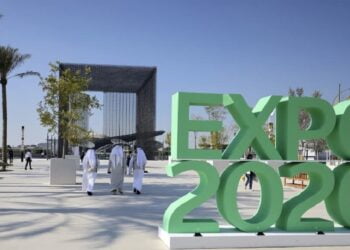Taliban’s co-founder Mullah Baradar is now in Kabul to prepare the arrangements for the formation of new Taliban government.
A Taliban spokesman claimed on Saturday that Mullah Baradar moved to Kabul for meetings by Saturday. The Taliban co-founder means to visit other group commanders to establish a new Afghan administration. Taliban took over Kabul less than a week ago facing no resistance by Ashraf Ghani administration.
With the withdrawal of the US forces along with its allies, the Taliban accelerated its rapid push throughout the Afghan territories. The “breathtaking collapse” of the Afghan military forces on Saturday, as German Chancellor described it, followed sooner than any local o foreign party could foresee.
Following the takeover of Kabul, scores of people have flocked to the city airport, as the Western countries sought to speed up the repatriation of their nationals. The rush, out of a potential Taliban brutality, deteriorated the security of the airport with scenes that socked the world.
Claims by the group officials has stressed that the Taliban is seeking a new paradigm for administering the country in the coming weeks. Taliban spokesperson said the group is working on with distinct work-groups to deal with domestic security and financial concerns.
Since regaining power, the Taliban has projected a more reasonable image, claiming they embrace peace, would not seek revenge on old foes, and will recognize women’s rights inside the boundaries of Islam and its regulations. This is while the Taliban’s 5-year grip to power from 1996-2001 saw severe bans on women for working, education, and clothing.
The return of Mullah Baradar to Kabul, who resided in Doha means the new power structure are on the way to take form. Mullah Baradar is one of the architects of the Taliban and his policies will be decisive in its governance model.
Mullah Baradar
The de-facto group leader is in Kabul to join forces and facilitated the passing the critical period. Mullah Baradar would meet with insurgent leaders, former political figures and politicians, and religious experts.
Baradar was the chief of the group’s political office. He was also a top-rank member of the group’s negotiation committee in Doha.
Security services in Karachi, a city in southern Pakistan, seized Mullah Baradar 11 years ago. The same country released him eight years later. Mullah Omar, former Taliban leader, accepted Mullah Baradar as a close adviser and trustee.
Taliban itself seems to have been shocked by the abrupt collapse of the country as there has been no arrangements for an alternative administration. The hesitation in creating a new regime or even announcement of the leader of the fresh Taliban rule certifies the theory.
They went so far to say that former administrations’ experts will be used for “crisis management.” According to a source inside Taliban, the new administrative system will not be an imitation of western democracy but it will defend the people’s rights to freedom and justice.
The group’s overall commander, Mullah Haibatullah Akhundzada, has not been heard so far. In a regular circumstance, he must have reconciled various factions inside the movement whose goals may not necessarily align after securing the victory.
The Taliban did not take the responsibility for the ongoing chaos at Kabul airport. The tumult is injecting further anxiety into a society already full of concerns about potential abruption of violence and brutality across the country.
Mullah Baradar’s presence in Kabul may have two faces. In an optimist view, he can get the public trust by restoring stability. In a more potential scenario, however, his presence may lead to no better condition further distrusting people with the status quo and the future.








